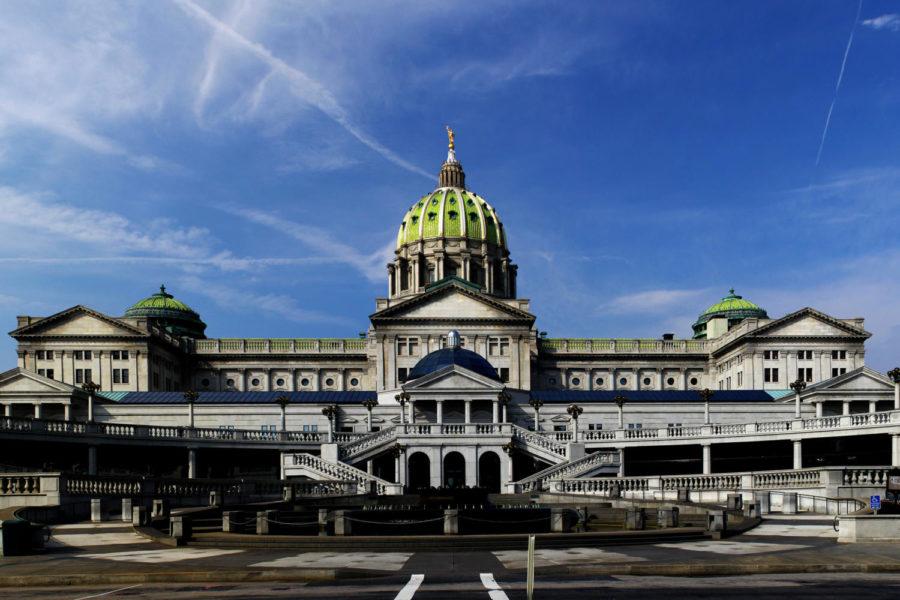State representatives unveiled legislation Tuesday that would expand transparency and public access to records at Pennsylvania’s state-related universities.
Pitt, Penn State, Temple and Lincoln — Pennsylvania’s four state-related universities — are currently exempt from the Right-to-Know Law, which gives the public access to records from state and local agencies.
Joined by state auditor general Eugene DePasquale, three Republican representatives — Aaron Bernstine, Jim Christiana and John Maher — held a press conference to discuss the legislation. The proposed legislation would expand the Right-to-Know requirements of the four universities and subject school trustees and employees to the Public Official and Employee Ethics Act, requiring employees to submit statements of financial interest.
“Like our state-owned schools, these universities receive a tremendous amount of tax dollars,” Christiana said. “Taxpayers deserve to know that their money is being used for the right reasons.”
The four state-related universities receive more than $560 million in public funding annually, which goes toward decreasing tuition for in-state students. Pitt received $158.9 million in 2017 — 7 percent of its operating budget.
“A lot of the transparency measures in the past have been a product of bad decision-making,” DePasquale said about the introduction of Pennsylvania’s second Open Records Law in 2008. “[And] I think we need to continually expand transparency measures in Pennsylvania.”
DePasquale, then a representative, introduced legislation that year to limit the state-related exemption to the Right-to-Know Law, but said “it went nowhere.” Now, a decade later, it’s being considered again. This time, the legislation is based on an audit of Penn State that DePasquale conducted in June.
“Over the past decade, we have raised the standard of transparency on behalf of the taxpayers,” DePasquale said. “It’s time for our state-related universities … to be held to the same standard.”
Along with expanding the Right-to-Know Law and Ethics Act, his audit recommended shrinking the size of the Penn State Board of Trustees. Penn State and Pitt each have 36 voting members, including public officials. Tuesday’s legislation would shrink Penn State’s to 21, but doesn’t mention Pitt.
DePasquale supports a similar shrinking measure for the Pitt Board of Trustees, spokesperson Susan Woods said in an email, but that would require separate legislation.
If this legislation passes, it would be the most significant change to the state-related transparency policies since 2008, when the universities were required to make public annual reports disclosing the salaries of officers and directors, the highest other 25 salaries and a Form 990, a nonprofit-specific tax document. That law was reevaluated in 2015 when Pitt spokesperson Joe Miksch said the University supported the expansion. When asked in February of this year if that was the case, Miksch said Pitt “would likely support similar legislation” if it were introduced. Spokesperson Kevin Zwick said Pitt’s outlook hasn’t changed.
“The university has not yet reviewed the proposed legislation, but we support efforts to promote transparency,” he wrote in a Tuesday email.
Last year, Pitt denied a Right-to-Know request from The Pitt News seeking a list of Pitt police officers and the year they were hired. Investigative Reporters and Editors in June named Pennsylvania’s state-related universities as finalist in the Golden Padlock award, “celebrating the most secretive government agency or individual in the United States.”



